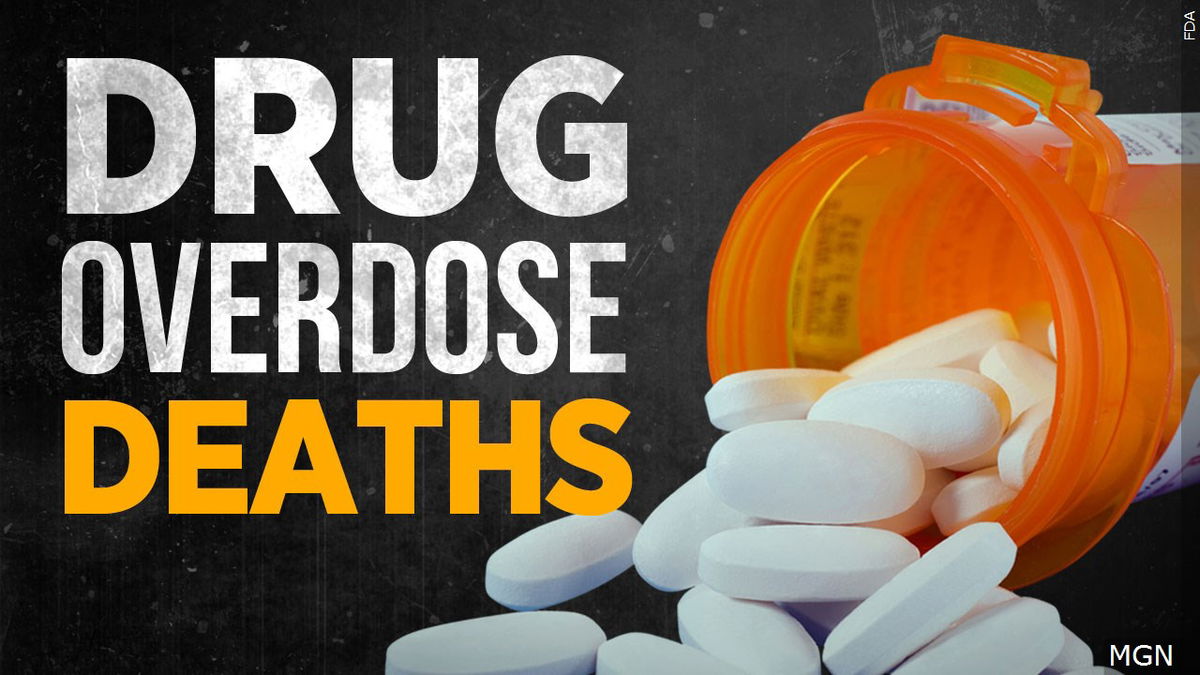Drug overdose deaths hit highest number ever during pandemic

NEW YORK, NY — Overdose deaths nationwide soared to a record 93,000 last year in the midst of the Covid-19 pandemic, the U.S. government reported Wednesday.
That estimate far eclipses the high of about 72,000 drug overdose deaths reached the previous year and amounts to a 29% increase.
"This is the highest number of overdose deaths ever recorded in a 12-month period, and the largest increase since at least 1999," Dr. Nora Volkow, director of the National Institute on Drug Abuse (NIDA), part of the National Institutes of Health, said in a statement.
"These data are chilling. The Covid-19 pandemic created a devastating collision of health crises in America," added Volkow.
Lockdowns and other pandemic restrictions isolated those with drug addictions and made treatment harder to get, experts said.
“This is a staggering loss of human life,” said Brandon Marshall, a Brown University public health researcher who tracks overdose trends.
The nation was already struggling with its worst overdose epidemic but clearly “Covid has greatly exacerbated the crisis,” he added.
As in recent years, inappropriate use of opioids was behind most of the deaths.
While prescription painkillers once drove the nation’s overdose epidemic, they were supplanted first by heroin and then by fentanyl, a dangerously powerful opioid, in recent years. Fentanyl was developed to treat intense pain from ailments like cancer but has increasing been sold illicitly and mixed with other drugs.
“What’s really driving the surge in overdoses is this increasingly poisoned drug supply,” said Shannon Monnat, an associate professor of sociology at Syracuse University who researches geographic patterns in overdoses. “Nearly all of this increase is fentanyl contamination in some way. Heroin is contaminated. Cocaine is contaminated. Methamphetamine is contaminated.”
However, doctors have also been blamed for over-prescribing opioids and addicting people to them in the first place.
Dr. Joshua Sharfstein, vice dean for public health practice at the Johns Hopkins Bloomberg School of Public Health and a former deputy commission at the Food and Drug Administration, said he thinks the FDA could and should do more to control over-prescribing of opioids.
"The emphasis should be on the oversight of prescribing," said Sharfstein. "If you think about how the country has made progress on Covid since there was a clear national strategy that included goals and good data and evidence for critical projects -- I think that kind of approach is important here. The same kind of urgency and strategy that has been applied to Covid could produce results over time."
There’s no current evidence that more Americans started using drugs last year, Monnat said. Rather, the increased deaths most likely were people who had already been struggling with addiction. Some have told her research team that suspensions of evictions and extended unemployment benefits left them with more money than usual. And they said “when I have money, I stock up on my (drug) supply,” she said.
Overdose deaths are just one facet of what was overall the deadliest year in U.S. history. With about 378,000 deaths attributed to Covid-19, the nation saw more than 3.3 million deaths.
The Centers for Disease Control and Prevention reviewed death certificates to come up with the estimate for 2020 drug overdose deaths. The estimate of over 93,000 translates to an average of more than 250 deaths each day, or roughly 11 every hour.
The 21,000 increase is the biggest year-to-year jump since the count rose by 11,000 in 2016.
More historical context: According to the CDC, there were fewer than 7,200 total U.S. overdose deaths reported in 1970, when a heroin epidemic was raging in U.S. cities. There were about 9,000 in 1988, around the height of the crack epidemic.
The CDC reported that in 2020 drug overdoses increased in all but two states, New Hampshire and South Dakota.
Kentucky’s overdose count rose 54% last year to more than 2,100, up from under 1,400 the year before. There were also large increases in South Carolina, West Virginia and California. Vermont had the largest jump, of about 58%, but smaller numbers — 118 to 186.
The proliferation of fentanyl is one reason some experts do not expect any substantial decline in drug overdose deaths this year. Though national figures are not yet available, there is data emerging from some states that seems to support their pessimism. Rhode Island, for example, reported 34 overdose deaths in January and 37 in February — the most for those months in at least five years.

